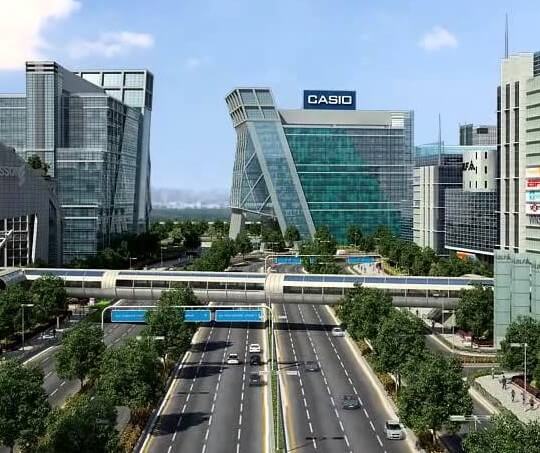
Smart cities are not built in a day but over a course of time and persistent effort. A smart city is a city that enhances the optimization of resources and improves the quality of living for its residents. These well-planned cities make optimum use of technology to gather, operate, and analyze data and convert it into actionable insights in order to revamp the city’s functionality.
Smart cities adopt smart technologies and implement them for their overall betterment and to enrich the lives and general well-being of their citizens. Some of the smart technologies that help in the development of smart cities are smart mobility, smart resources, and smart health. Smart mobility is the alternative, smart, and innovative solution to a city’s transportation problems. It can involve smart cards for public transport, traffic management solutions and/or systems, a navigation application, etc. Whereas, Smart resources is a set of inventive techniques applied to resource management to reduce waste, regulate consumption, and anticipate any future shortage. Smart health, on the other hand, can be employed to help cities observe, detect, and protect the overall health and well-being of their residents. For e.g., the data acquired by health centers and hospitals can be utilized to recognize projection in specific rate of spreading of a disease to help restrict its growth.
Developing a smart city is not a one-size-fits-all activity since there are a lot of factors to be considered like the time, geographical location, the weather of the region, etc. but various best practices are being identified by a multitude of research. These lessons can be applied to smart city initiatives to guarantee a successful adaptation.
1. Engagement & Connection
Smart cities, around the globe, have made sure to put people first and this people-centric approach to everyday living is what makes it different. They make sure the citizens are connected, invested, and engaged. Not only are their grievances heard and their concerns understood, but they are also made the basis of action to leave them with a holistic living experience.
2. External & Internal Capacity
The smartest cities of the world are known to not only build reliable internal capacity but outsource a surplus of resources whenever required. That can be helping a fellow city or country in the midst of a national or global crisis which builds a sense of hope and trust. Leaders who believe in building internal and external capacity will never go at it alone rather than construct dependable external sources when faced with harsh circumstances.
3. Technological Partnerships
Smart city leaders build technology-rich partnerships other than simply outsourcing technological programs from other technologically advanced cities. That will help them build those technologies themselves to preserve developmental control. These coalitions are the key to keeping the power of implementation in their own hands meanwhile building amicable and useful relations with technology-savvy partners.
4. Invested in next-gen technology
The smartest of the cities are known to capitalize heavily on brand-new and advanced technologies in a secure manner to avoid any risks or liability. Almost all of the paramount cities in the world have an innovation center to advocate, assist, and advance the use of next-gen technology in their cities and the world at large.
5. From Data to Insight
Smart cities value raw data at a time when the technological world is moving towards big data and data analysiṣ. They acquire, access, analyze, and adapt it into actionable insights in order to realize the untapped potential of data sciences. This is executed by effective policies, systems, and partnerships with a shared and crystal-clear goal.
Change becomes the most dynamic, powerful source of progress you have

